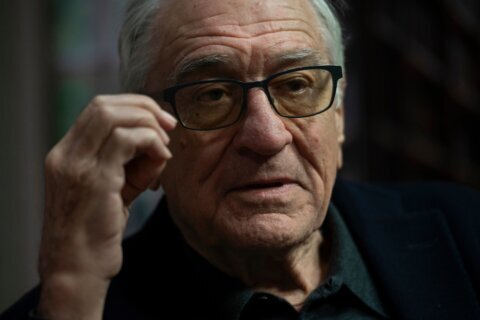He has won a handful of Grammys and charted a number of hit singles over the years.
This weekend, country legend Marty Stuart hits The Birchmere on Friday and Saturday.
“We got sent home from the tour we were on back in March,” Stuart told WTOP. “The bus hasn’t cranked since March, so coming to The Birchmere will be the first time I’ve actually done a concert. … It’s gonna be wonderful to get out of town and play my guitar again, so I’m looking forward to coming back to The Birchmere.”
Born in Mississippi in 1958, Stuart fell in love with country music at an early age.
“The first two records I ever owned in my life was a Lester Flatt & Earl Scruggs record and a Johnny Cash record,” Stuart said. “Those two guys, along with Bill Monroe and probably Merle Haggard, those are the people that really spoke to me as a kid and a young musician, and as I grew up in life, they became my friends.”
Indeed, Stuart got his start touring with Flatt and Cash.
“I was a sponge,” Stuart said. “I learned by observing and just seeing how they lived their lives and how they conducted business. … Lester taught me about longevity. … His words were, ‘To be welcome every Jan. 1.’ … And Johnny Cash, the thing I picked up from [him] was he was fearless when it came to creativity.”
Stuart’s big break came after a CBS Christmas special, jamming in a hotel with Cash’s future Highwaymen supergroup Willie Nelson, Waylon Jennings and Kris Kristofferson.
“I remembered how magical it was,” Stuart said. “Glen Campbell had recorded a song written by Jimmy Webb called ‘The Highwayman.’ … So I took that song to the studio and presented it and they recorded ‘The Highwayman.’ Columbia music executives knew all about that, so on the strength of that they said, ‘You want to make a record?'”
Thus, Columbia Records released Stuart’s self-titled debut album in 1985.
“It just never really clicked at Columbia,” Stuart said. “It was probably my fault because I was trying for a direction that probably the world wasn’t ready for at that time and I probably wasn’t ready for. I lost my record deal, cooled off, regrouped and came back and it really became important to me to have a whole bunch of hits: hit, hit, hit, hit, hit.”
He did just that with his second album “Hillbilly Rock” (1990) for MCA Records.
“We hit a groove at MCA, me and the team,” Stuart said. “‘Hillbilly Rock’ and all those songs started coming and I liked it. It gave me an excuse to get a bus and a band and some cowboy clothes and go up and down the road and play music that I loved.”
His third album “Tempted” (1991) went gold again with hits like “Burn Me Down.” That same year, he wrote and recorded his Travis Tritt duet “The Whiskey Ain’t Workin’.”
“I was going through a Burger King drive thru in Alabama one day on the road and I heard this voice come on my radio singing, ‘I’m a member of the country club,'” Stuart said. “I went, ‘Whoever that is singing, that’s a good place for that whiskey song.’ I sent it to Travis Tritt’s record producer. … The song snuck up on us and it became a hit.”
The song earned the first of several Grammys for Stuart, including “Same Old Train” (1999), “Foggy Mountain Breakdown” (2001) and “Hummingbyrd” (2011).
“I can’t explain it other than I get up and go to work every day,” Stuart said. “The mission at hand now is not so much about racking up one more accolade here or there, but it’s about passing it on. … Anything we can do to help young artists to pass it along, especially when it comes to a traditional country music, it’s a great thing.”
Today, Stuart is an elder statesman of the genre and was recently a standout voice in filmmaker Ken Burns’ masterful PBS documentary series “Country Music” (2019).
“That was a labor of love,” Stuart said. “I worked on that show for eight years. I love Ken Burns’ work. He and his team are just the best of the best of the best, and once they’re finished with a subject, it is done and it is a part of the American curriculum.”
Stuart even learned something about his own life.
“My wife, Connie Smith, came to my hometown to sing when I was a kid,” Stuart said. “When we were fact checking … they said, ‘An 11-year-old Marty Stuart.’ I said, ‘Guys, hold on, I think you’re wrong. I think I was 12.’ They said, ‘No, you were 11.’ I had been telling it wrong all these years! They did the math and they proved me wrong!”
Listen to our full conversation here.







